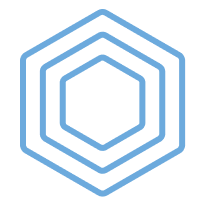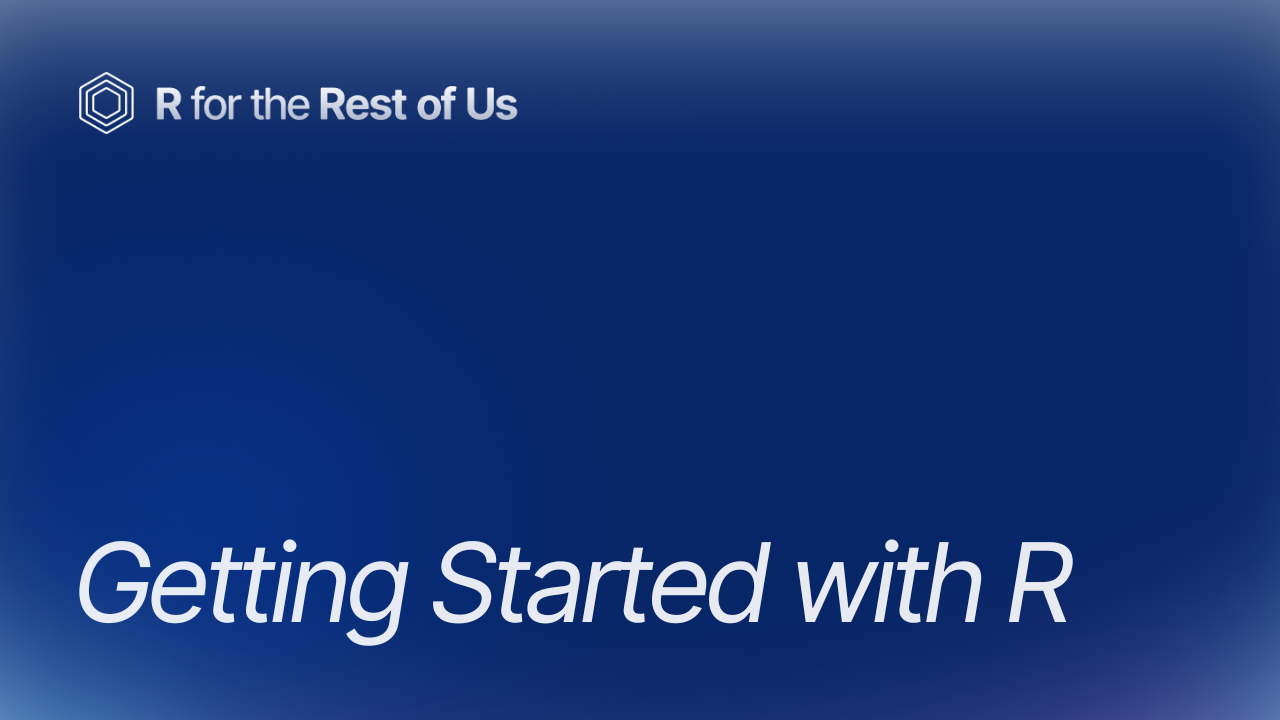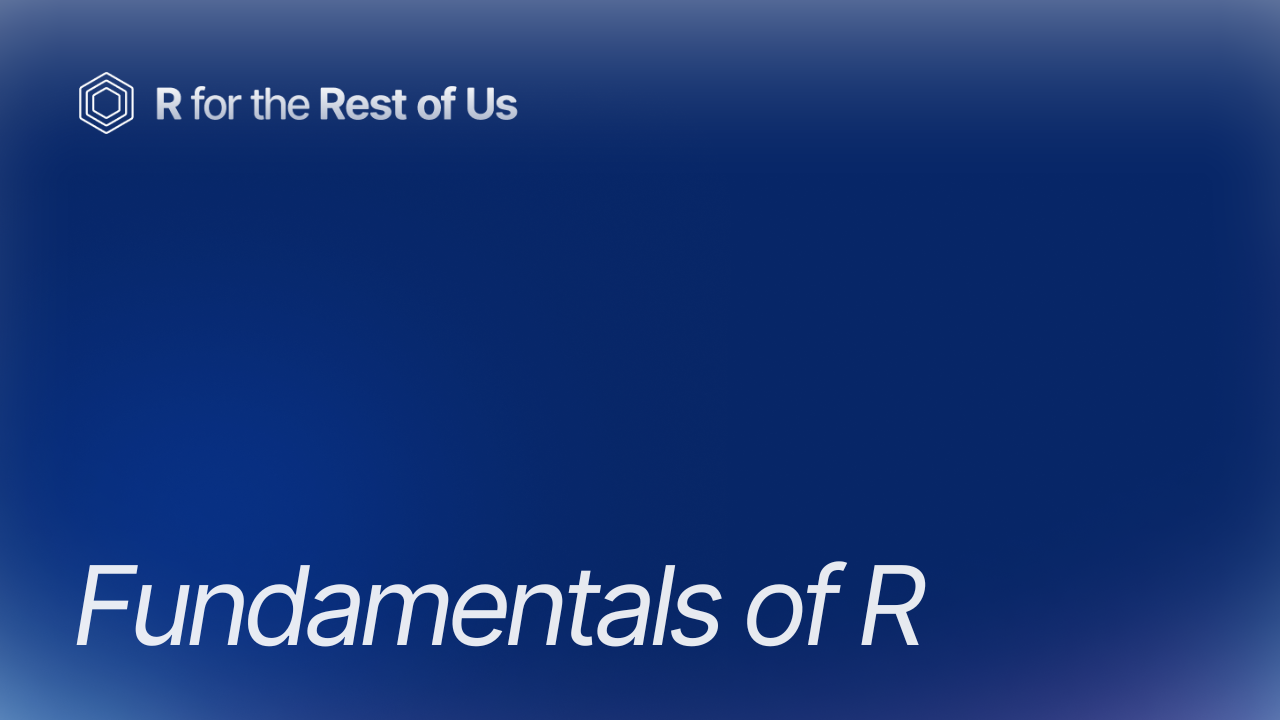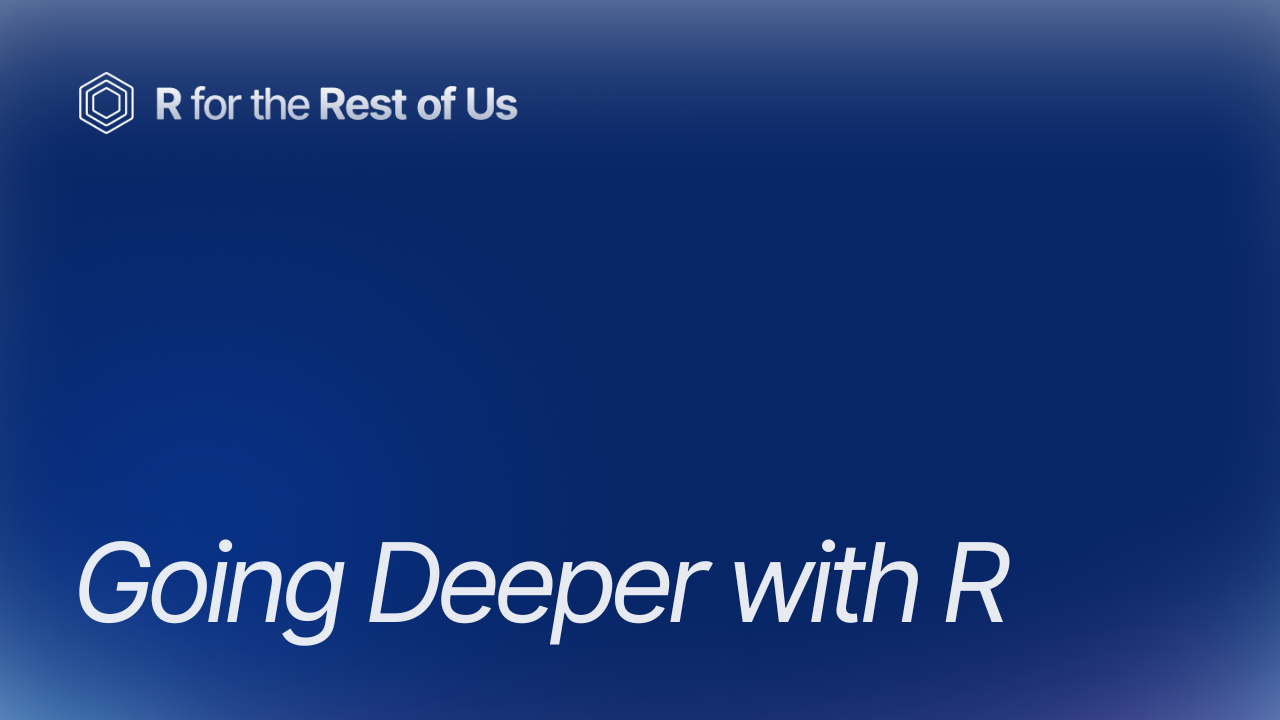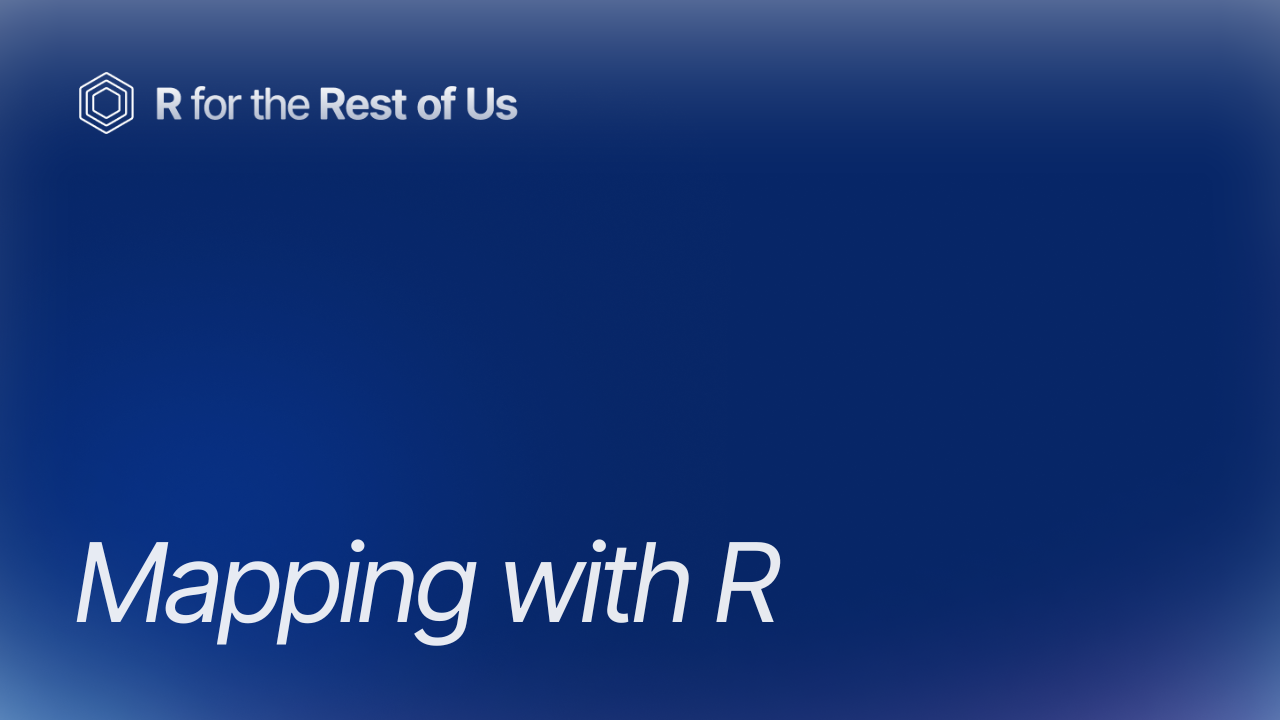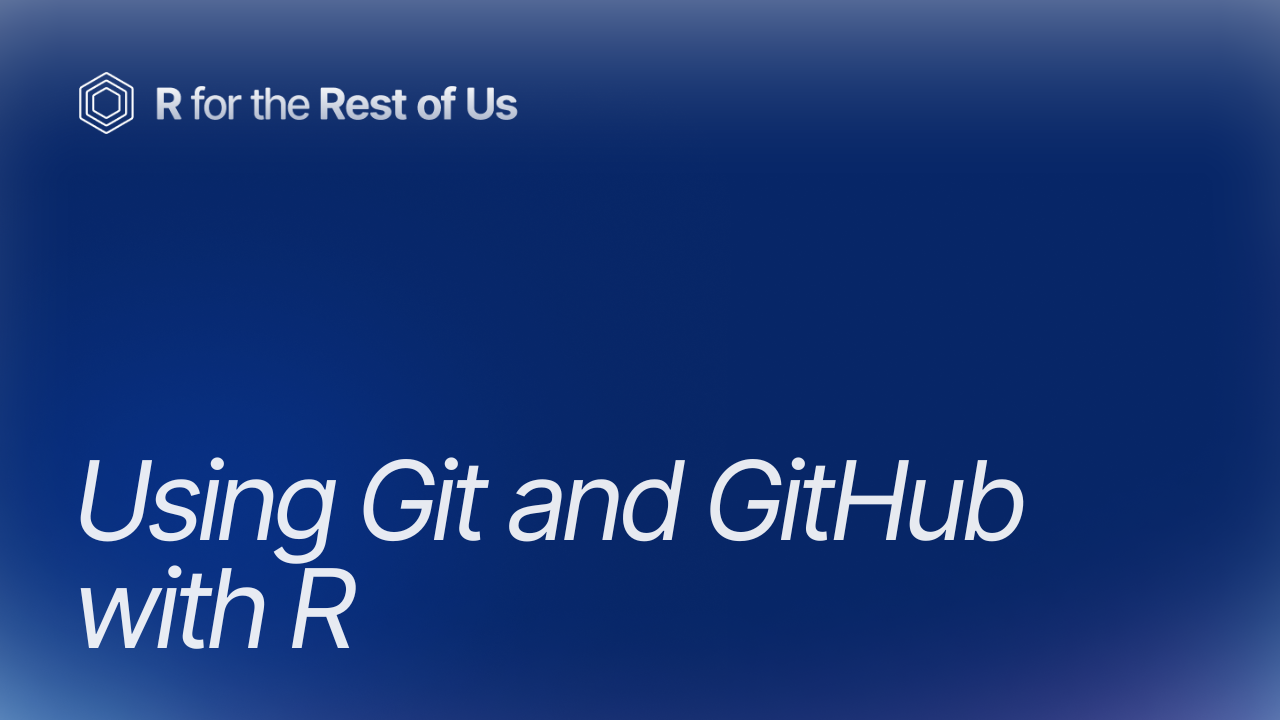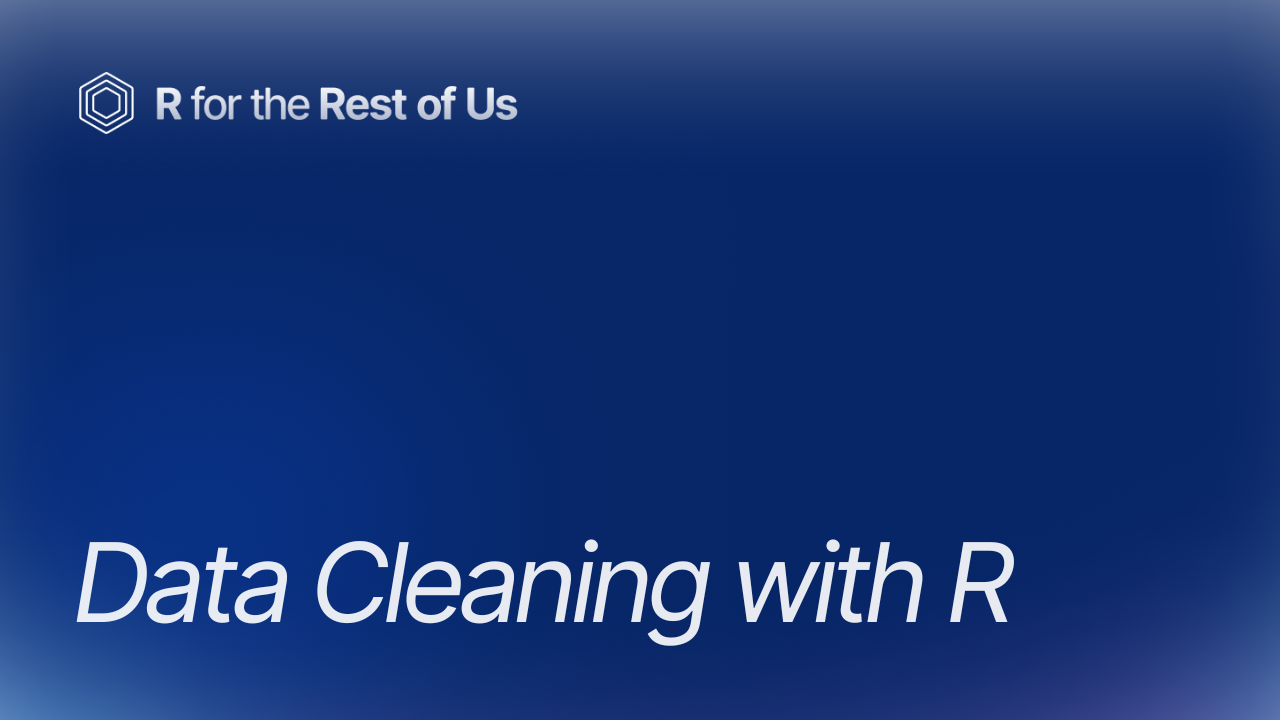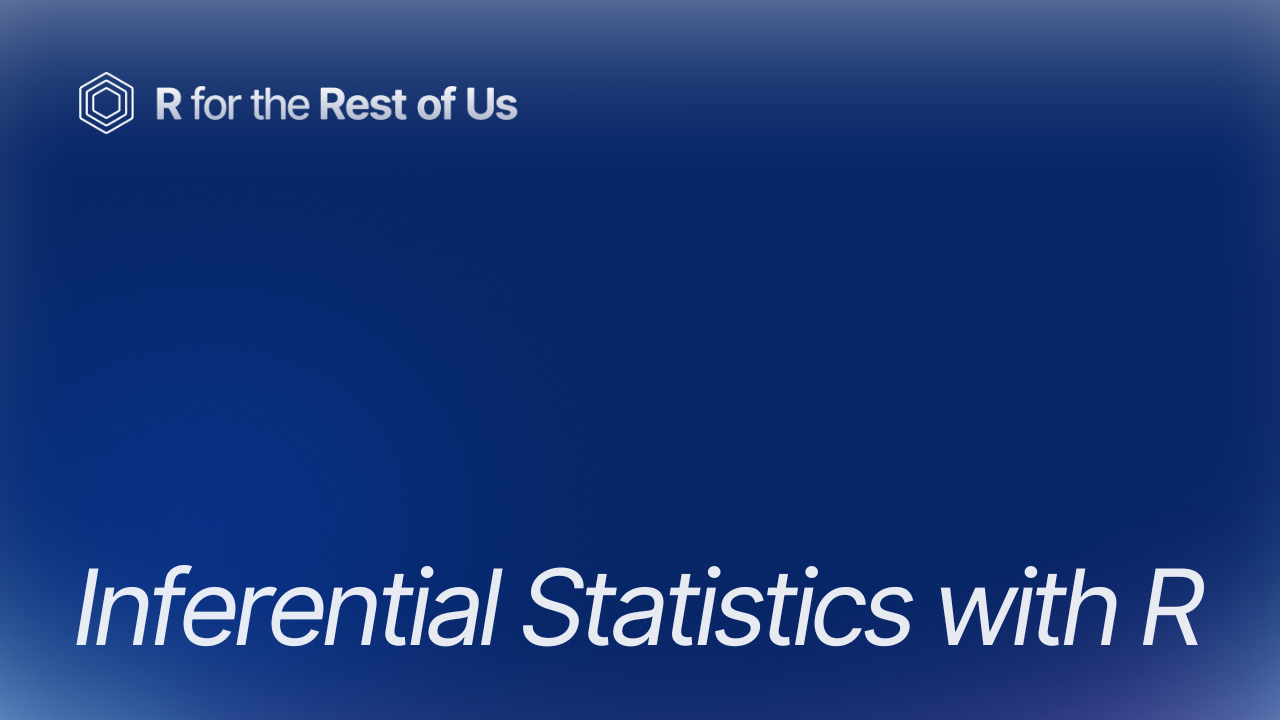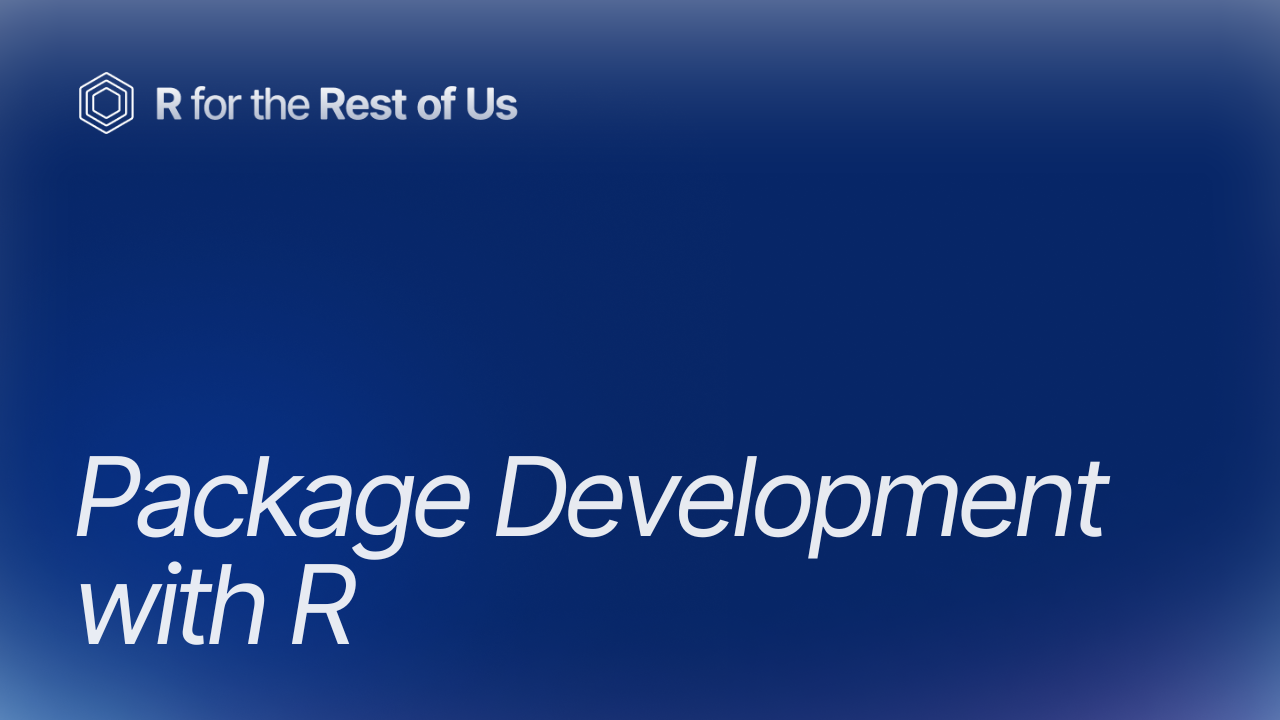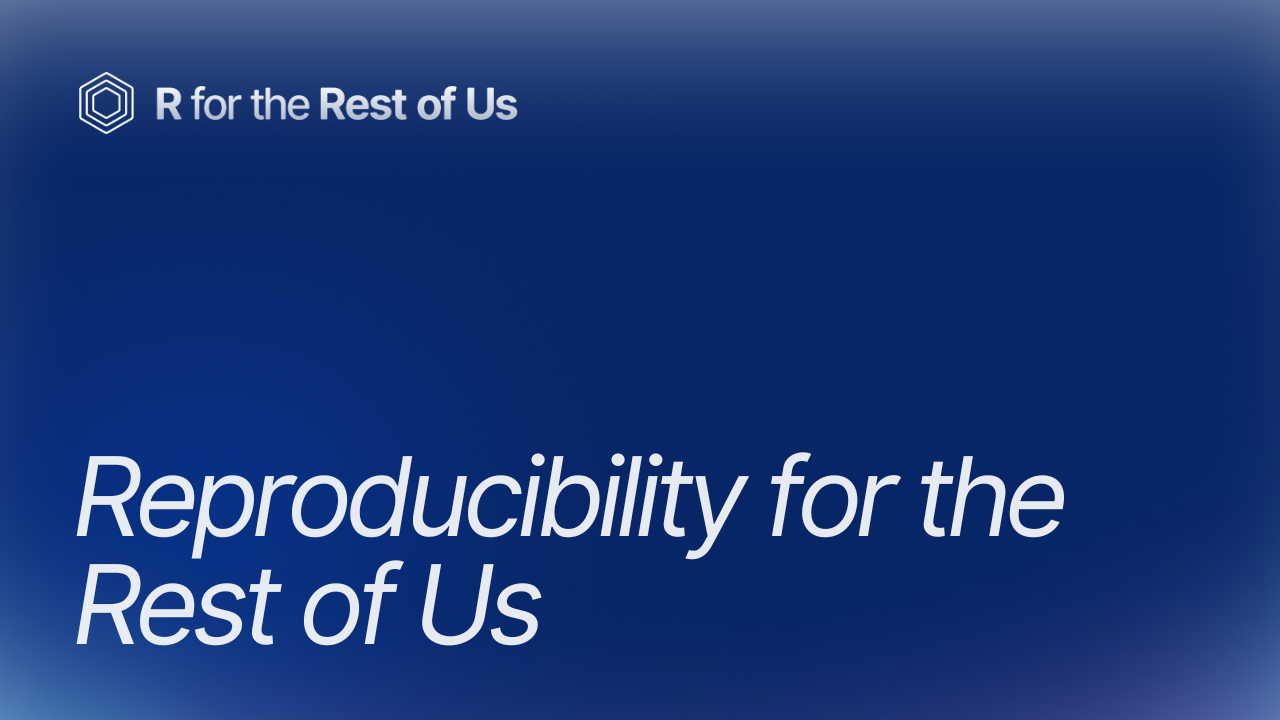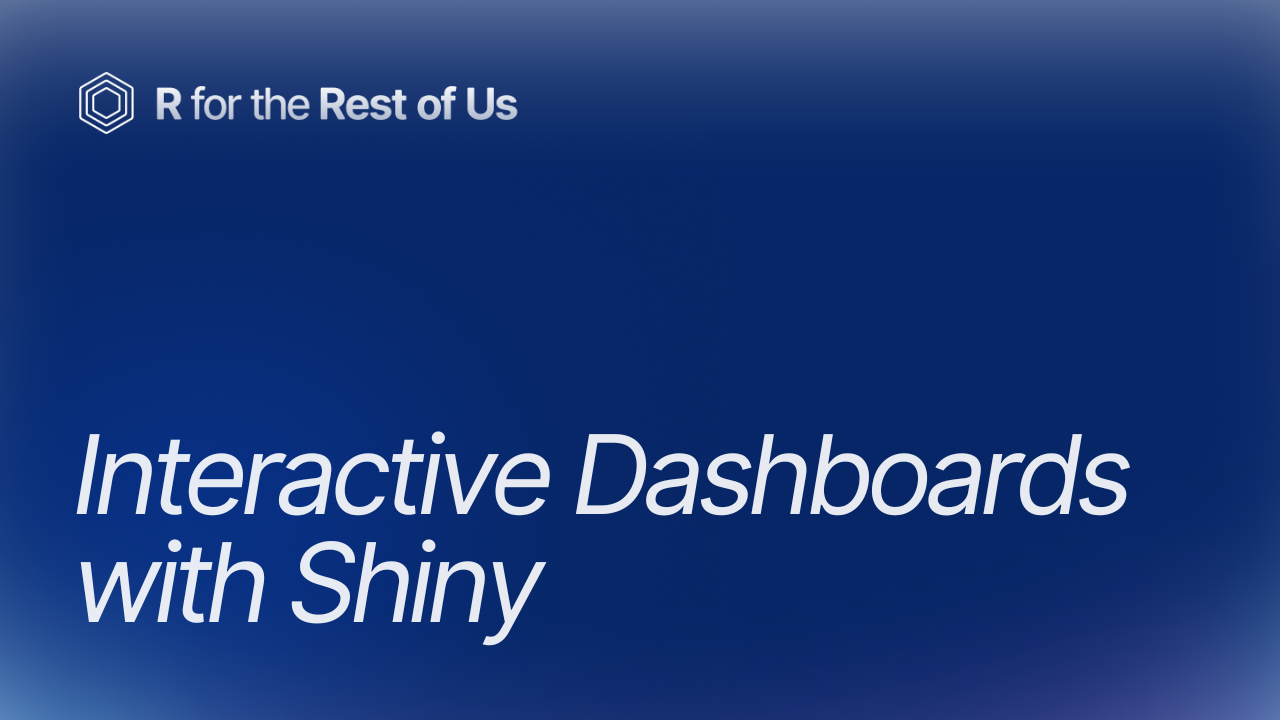Courses
You don’t need a PhD in statistics or years of coding experience to learn R. Anyone can learn the most powerful tool for data analysis and visualization.
R lets you wrangle, analyze, and visualize data quickly, efficiently, and beautifully.
Oh, and it’s free.
The R for the Rest of Us online courses are designed to guide you through every step on your R journey. All courses combine combine video lessons with exercises for you to practice what you’re learning. You also get access to carefully curated resources so that you can learn more about any topic that piques your interest. And, if you need help along the way, you can post questions and get answers.
Ready to really dive in?
R in 3 Months offers high-quality course materials, personalized feedback, and a supportive community.
Core Track
From "what's R?" to "I love R!" in three courses. Start here when you're just starting out.
Getting Started With R
One of the main obstacles that many new R users face is simply getting started. This free course is designed to get new users, no matter what’s holding you back, up and running quickly. It takes you step-by-step, helping you download exactly what you need to get started.
Fundamentals of R
R can be intimidating. I know because it intimidated me before I learned how to use it.
But the thing is, you don't need to know everything about R in order to use it.
Fundamentals of R takes a focused approach, helping you learn the fundamental skills that you need to succeed.
Going Deeper with R
Once you’ve got the fundamentals of R down, you can do a lot with R. But what happens when:
Your data isn’t in the right format to plot with
You get messy data and don’t know how to deal with it
You want to go beyond reports to produce presentations, dashboards, and website from Quarto documents
These are just a few of the questions that Going Deeper with R is designed to answer.
Topics Courses
Courses on particular topics taught by my talented friends in the R community.
Making Beautiful Tables with R
Tables are often boring, hard to read, and, most importantly, they don't communicate effectively. In this course, Albert Rapp will show you that creating beautiful tables is just a matter of learning some important principles. You'll learn these principles and how to apply them using the flextable package. And when you're done making your beautiful tables, you'll learn to export them to any format you need. If you're ready to make tables that look great and communicate well, this is the course for you!
Mapping with R
In recent years, R has become a fully-fledged tool for doing geospatial work. With R, you can make choropleth maps, hexbin maps, you name it. Any type of map you can think of, you can make it in R.
Don’t waste your time and your money learning to make maps in other tools. Get started today and you’ll be making maps in R in no time.
The Glamour of Graphics
Have you ever looked at a beautiful chart and thought: wow, I wish I could make something like that! It might seem like some people have an innate design sensibility that you don’t. It’s easy to think, “I’m a data person, not a designer. I’m never gonna be able to make beautiful data viz.”
But here’s the secret: anyone can make beautiful data viz.
Will Chase is a journalist at Axios who has worked for years to hone the craft of designing data viz. In this course, which builds on Will’s 2020 talk of the same name, he’ll give you a peek behind the curtain showing you how to do it too, all while working in R.
Using Git and GitHub with R
I’ve taught a lot of people to use R. Once they get the basics down, one of the first questions they ask is: how do I share my code with others? Should they email it? But then, if they need to change the code, they have to send it again. Should they put it on Dropbox? But if multiple people work on a file on Dropbox, all sorts of problems ensue.
What to do? The answer is Git and GitHub.
Using Git and GitHub allows you to share code, ensuring everyone has the most up-to-date code and allowing multiple people to work on the code at the same time.
Data Cleaning with R
Data cleaning skills are essential to your success. Fortunately, R has some great packages to help with data cleaning. Unfortunately, knowing what these packages are and how to use them is not straightforward. This course will help you learn how to take messy data and quickly clean it.
Inferential Statistics with R
R is unique among programming languages because it is designed for statistics. Unlike other general purpose languages that can work with data (e.g. Python), data analysis is at the core of what R does.
Given this, many people are disappointed when they struggle to figure out how to do inferential statistics with R. They say, "I know how to do a t-test in SPSS, I just want to do the same thing in R!" Sound familiar? If so, this course is designed for you.
Package Development with R
Learning to make your own functions is a huge step on your R journey. But how do you reuse functions across projects? The answer is to make your own R package.
This course will show you how to make your own package and help make you more efficient than you've ever been before.
Reproducibility for the Rest of Us
Ever had to deal with R code that worked in the past, but doesn't work today? The problem could be that your code is not reproducible. In this course, you'll learn to write code with good formatting and naming practices that can be easily read by humans and computers. You'll learn how to document your code so that collaborators and future you can understand it. And you'll learn about literate programming using Quarto to write reports that can be reproduced at any point.
Interactive Dashboards with Shiny
Ever wanted to turn your R code into a powerful, interactive web application? Shiny is the tool for you!
But learning to use Shiny is hard. Even experienced R users can feel lost when trying to pick up Shiny.
If you’ve seen Shiny apps and wondered how they’re made, this course will show you. If you’re ready to start making your own Shiny apps, sign up for Interactive Dashboards with Shiny today.
